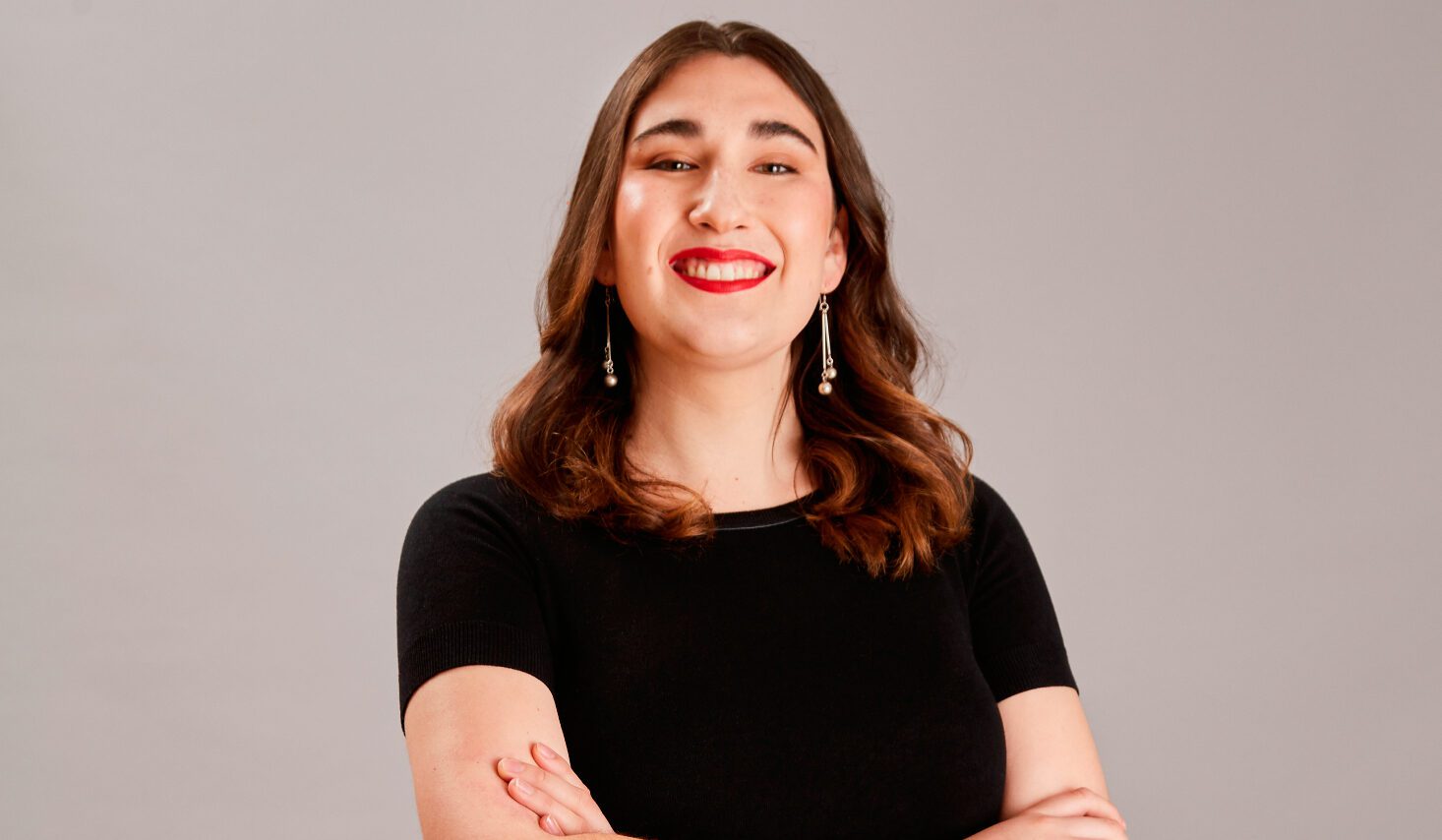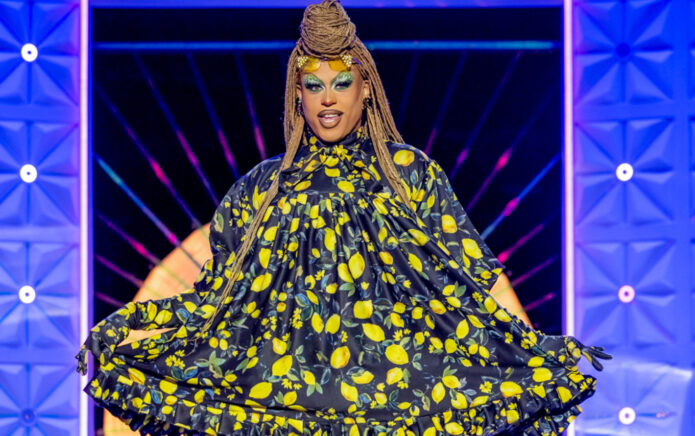
Emilia Schneider is part of the new generation of young people who come to the Chilean democratic institutions from social movements. At 25-years-old, she has become the first trans woman elected deputy in the history of the country. She is a member of the Comunes party, which is part of the Frente Amplio coalition of President Gabriel Boric (36). The parliamentarian will represent District 10 of Santiago de Chile.
Her name began to resonate in 2018 during the student mobilization days known as “Feminist May”, in which university and high school students demonstrated against sexual abuse within educational institutions, demanding gender equality as well as the elimination of sexism in education.
“Not only do I come to represent feminists and sexual dissidence, but also a vast majority that wants changes. I am part of the government coalition, I am a leftist woman and I believe in a future in which Chile guarantees social rights, has a full democracy and where we are freer and more equal than today, when there is still so much inequality,” declared the deputy in this exclusive interview for GAY TIMES.
On 11 March, three other LGBTI women arrived at the National Congress with Schneider: Marcela Riquelme, Camila Musante and María Francisca Bello. Boric has also appointed two openly LGBTI members to accompany him to La Moneda. The teacher and athlete Alexandra Benado Vergara assumed the Ministry of Sports, while the teacher Marco Antonio Ávila was appointed Minister of Education.
Hi Emilia, congratulations on your achievement. How are you?
Thanks! I’m fine, very tired because of the agenda, many people have come to see Boric’s change of command.
How did your involvement with politics begin?
My interest in politics arises from a personal question, from trying to find answers to violence and discrimination that I have experienced as part of sexual diversity, my friends, my mother, my environment in general and also my activism in student mobilizations. In 2011, I was still at school when the president [Boric] himself, the minister [Camila] Vallejo and the minister [Giorgio] Jackson were student leaders. It was a moment of great politicization for my generation, and we wondered why our leaders did not incorporate feminist and sexual dissidence perspectives. Little by little we got involved in activism and that would lead me to more activism once I entered university.
And from activism to becoming a deputy?
My initial roles were far from being visible. I liked grassroots work, more community work, and then I had to assume leadership positions. At university, my first space for social militancy was the secretary for sexuality and gender. We achieved important changes in the universities and in this process the mobilizations of 2018 took place, a very important year for the Chilean feminist movement. Being a spokeswoman for March 8th was a turning point for me, because from that moment on I had much more visibility. At that time I was a leader in my faculty and later became president of the Student Federation of the University of Chile. I had to live through the social unrest and the pandemic in this position. They were very demanding situations, but with a lot of political learning. I was a candidate for the constituent assembly, the convention to write the new Constitution, but I was not elected. Then they convinced me to try the deputation, and I was elected.
What does it mean to you to be the first trans deputy in Chile?
A tremendous pride and a tremendous responsibility because I feel like I inherited a legacy of struggle from many companions. I got here precisely because there were trans companions, LGBTI activists who opened up space for us to live with more rights. We have a task of reparation for the companions who paved the way and who have not been able to enjoy these rights, as well as a mandate for the future and to be able to contribute so that future generations, in particular the LGBTI community, do not experience the same violence, discrimination and precariousness that we have experienced.
The most remarkable fact of the last elections in Chile has been without a doubt the entry of young people in democratic institutions…
There is an important role for youth, but it is not just a matter of age. For a decade there has been a very powerful eruption of leadership coming from social movements, from citizen organisations, which has occurred precisely in the heat of the mobilisation process. All of this is embodied very well by our president, who a decade ago was a social leader. The coalition to which I belong comes from social struggles. And that seems very positive to me since it supposes a rupture with politics and a very exclusive, closed and elitist democracy. Little by little we have been breaking that, and new voices are now being heard. But not individual voices, but voices that represent social struggles. This fills me with great hope for this process.
Do you think it is something that has come to stay, or is it the result of a specific moment?
I hope this is here to stay. However, none of that is given, you have to work for it, and you have to work to meet the expectations of citizens. We are writing a new Constitution to finally end the legacy of the dictatorship and at the same time be able to work and dialogue with the people. The transformations we dream of are not possible in a period of four years, but they are, if we are capable of communicating, organising, articulating. I have great hope that this is here to stay, that we are here to stay.
It has been 10 years since the murder of Daniel Zamudio, a tragedy that prompted the approval of the law against discrimination. However, the legalization of same-sex marriage has been quite late compared to similar Latin American countries and there are also criticisms of the Zamudio Law in the way it deals with preventing discrimination.
The first thing is that there has indeed been progress in our country, the Gender Identity Law, Equal Marriage, but there has been a lack of attention to a more dramatic issue: the huge numbers of hate attacks and exclusion from work and education of the LGBTI community. In this sense, the Anti-Discrimination Law has been an ineffective tool. A reform of this law is already being processed in Congress, in which LGBTI organisations and activists have worked together. Still, other claims remain pending, such as labour inclusion and inclusion in education. Ten years after the murder of Daniel Zamudio, we see how society has changed profoundly. We live in a society that already understands sexual diversity, that believes that all people deserve equal rights without discrimination, but it is time for this to translate into public policies. And that is what I hope to contribute.
This week, the first same-sex marriages were celebrated. Now that it has been legalised, what are the most urgent demands of the collective?
We must urgently deal with the hate crimes and violence that we suffer. To live a decent life implies being able to feel safe in the streets and free to express ourselves. In addition, it must be understood that the demands of the LGBTI community do not differ much from those of the rest of the people. We demand the right to a decent job, to decent health, to public education, basically, to have access to full citizenship rights.
How should that be put into practice?
Firstly, we need to address everything that, as a result of the pandemic, has been lost in terms of employment and economic stability that also affects LGBTI people. One of the issues I have focused most, and that I hope to continue working on, is comprehensive sexual education. In Chile, we do not have it guaranteed as a right. Education is the only way to build a society free from hate and discrimination from the root. These are some of the things that I have discussed with the other colleagues that represent the LGBTI community in Congress. Also, the fact that the new Minister of Education is part of sexual diversity should pave the way to address these issues in the classroom.
You were a spokesperson for March 8th. In recent years, we have seen a proliferation of exclusionary trans discourses within feminism.
It is a phenomenon that I observe in the rest of the world with concern. It seems to me that it is losing focus, the feminist movement aims not to articulate ourselves by what we are, in terms of identity, but rather with what we believe in political terms. There are different ways of experiencing being a woman, being from the countryside, from the city, being rich, being poor, being a trans woman and being a cis woman, there are different ways of experiencing oppression. The focus has to be on how we articulate ourselves in these different experiences to transform our reality.
How is the situation in Chile? Do you feel welcomed by the feminist movement?
In Chile, these hate speeches in feminism have not penetrated as much. Our movement, as in Argentina or in most parts of Latin America, has an eclecticism in this sense. Feminism is built by trans women, cis women, women from different sectors of society, and this has also been marked by decisions made by the Chilean feminist movement. When I became the spokesperson for March 8th in 2018, it was probably the first time in Chile that there was a trans spokesperson in these marches. These types of decisions communicate to the movement that organized feminist spaces have a clear view. I think that Latin America is a bastion of resistance, in some way, of another possible feminism.
At the same time, the extreme right reached Congress for the first time and, as it has happened in other countries, their occupying democratic institutions could pose a risk to LGTBIQ+ people.
It is complex because we have a very fragmented Congress. There is the right, the extreme right, the different coalitions. We have the challenge of dialoguing with all the forces that want to move towards the future and not go back to an authoritarian and ultra-conservative past. I am worried about the advance of the extreme right in Chile as they have proved to be well organised and aware of the sectors and classes that they represent, thus making Pinochetism resurface, a shameless vindication of the dictatorship. In addition, they just focus on stirring the debates without offering a real contribution or trying to advance their proposal. This is because they simply do not have a project on how to get us out of the crisis that the world and our country are experiencing. The biggest challenge is, however, what kind of opposition they will choose to follow, the path of this regressive and ultra-conservative right or a more constructive one? In order to be able to advance in the line that we have been fighting for so long in the streets, we need the commitment not only from the Government but also from the society.
I suppose that during the election campaign, your contact has been with people who are already ideologically close to you in some way. Now that you are a deputy, how has the reaction of the population been?
I feel very much welcomed, especially in the territory I represent. I feel it is the culmination of the work done with social organizations, both as a student leader and as a feminist and sexual dissident activist. I feel very prepared, and I also hope to be a bridge thanks to the closeness I have with some sectors of the society. To be a bridge so that the Congress re-legitimizes itself and ceases to be a distant space in the eyes of the citizens. It is also a recognition of the fight for the visibility and dignity of our LGBTI community that has earned an indisputable place in our society.

La primera diputada trans de la historia de la democracia chilena nos cuenta su jornada desde que era dirigente estudiantil hasta llegar al Congreso Nacional.
Emilia Schneider forma parte de la nueva generación de jóvenes que llegan a las instituciones democráticas chilenas provenientes de movimientos sociales. A sus 25 años se ha convertido en la primera mujer trans elegida diputada en la historia del país. Militante del partido Comunes, que integra la coalición Frente Amplio, del presidente Gabriel Boric (36), la parlamentaria representará al Distrito 10 de Santiago de Chile.
Su nombre empezó a resonar en 2018, durante la jornada de movilización estudiantil conocida como “Mayo Feminista”, en la que estudiantes universitarias y de secundaria se manifestaron en contra del abuso sexual en las instituciones educativas, exigiendo igualdad de género, así como la eliminación del sexismo en la educación.
“No solamente vengo a representar a las feministas, a las disidencias sexuales, sino a una mayoría que quiere cambios. Soy parte de la coalición de Gobierno, soy una mujer de izquierdas y creo en un futuro en el que Chile garantice derechos sociales, que tenga una democracia plena y en el que estemos más libres e iguales que hoy día, en que hay tanta desigualdad”, declaró la diputada en esta entrevista exclusiva para GAY TIMES.
El pasado viernes, 11 de marzo, junto a Schneider han llegado al Congreso Nacional tres mujeres LGBTI: Marcela Riquelme, Camila Musante y María Francisca Bello. Boric ha nombrado, además, dos personas abiertamente LGBTI para acompañarle en La Moneda. La profesora y deportista Alexandra Benado Vergara asumió el Ministerio de Deportes, mientras que el profesor Marco Antonio Ávila ha sido nombrado Ministro de Educación.
Hola Emilia, enhorabuena por tu éxito. ¿Cómo te encuentras?
¡Gracias! Estoy bien, muy cansada por la agenda, ha venido mucha gente a ver el cambio de mando de Boric.
¿Cómo empezó tu envolvimiento con la política?
Mi interés por la política surge de una cuestión personal, de tratar de encontrar respuestas a violencias, discriminaciones que me ha tocado vivir a mí como parte de las diversidades sexuales, a mis amigas, a mi mamá, a mi entorno en general y también al calor de las movilizaciones estudiantiles. En 2011 estaba en la escuela cuando el mismo presidente [Boric], la ministra [Camila] Vallejo y el ministro [Giorgio] Jackson eran dirigentes estudiantiles. Fue un momento de mucha politización para mi generación y nos preguntábamos por qué nuestros dirigentes no incorporaban las miradas feministas y de las disidencias sexuales. Poco a poco nos fuimos involucrando en el activismo y eso me llevó a involucrarme en el activismo cuando entré en la universidad.
¿Y de ahí a convertirse en diputada?
Empecé en un rol muy alejado de lo visible, me gustaba el trabajo de base, más comunitario y luego me tocó asumir cargos dirigenciales. En la universidad, mi primer espacio de militancia fueron las secretarías de sexualidad y género. Logramos cambios importantes en las universidades y en este proceso se dieron las movilizaciones del 2018, un año muy importante para el movimiento feminista chileno. Ser vocera del 8 de Marzo supuso un antes y después para mí, pues a partir de ese momento tuve más visibilidad. En aquel tiempo era dirigente en mi facultad y posteriormente presidenta de la Federación de Estudiantes de la Universidad de Chile. Me tocó vivir las revueltas sociales y la pandemia en este cargo. Fueron coyunturas muy exigentes, pero de mucho aprendizaje político. Fui candidata a la constituyente, la convención para escribir la nueva Constitución, pero no resulté electa. Luego me convencieron de intentar la diputación y salí electa.
¿Qué significa para ti ser la primera diputada trans de Chile?
Un tremendo orgullo y una tremenda responsabilidad porque me siento heredera de un legado de lucha de muchas compañeras. Llegué hasta acá justamente porque hubo compañeras trans, activistas LGBTI que abrieron espacio para que viviéramos con más derechos. Tenemos una tarea tanto de reparación para las compañeras que abrieron camino y que no han podido gozar de estos derechos, como también un mandato para el futuro y poder aportar a que las futuras generaciones, en particular la comunidad LGBTI, no vivan las mismas violencias, discriminaciones y precariedades que hemos vivido.
El hecho más destacable de las últimas elecciones en Chile ha sido sin duda la entrada de gente joven en las instituciones democráticas.
Hay un importante rol de la juventud, pero no es solamente una cuestión de edad. Desde hace una década hay una erupción muy potente de liderazgo que viene de movimientos sociales, de las organizaciones ciudadanas, que justamente se ha dado al calor del proceso de movilización. Todo eso lo encarna muy bien nuestro presidente, que hace una década era un dirigente social. La coalición a la que pertenezco también se constituye de las luchas sociales. Y eso me parece muy positivo, ya que supone una ruptura con una política y una democracia muy excluyente, cerrada y elitista. Poco a poco hemos ido rompiendo eso y nuevas voces van siendo escuchadas. Pero no voces individuales, sino voces que representan luchas sociales, lo que me llena de esperanza en este proceso.
¿Crees que es algo que ha venido para quedarse o es resultado de un momento concreto?
Espero que venga para quedarse. Pero nada de eso es dado, hay que trabajar para ello y hay que trabajar para cumplir las expectativas que tiene la ciudadanía. Estamos escribiendo una nueva Constitución para finalmente terminar con el legado de la dictadura y al mismo tiempo ser capaces de trabajar y dialogar con la ciudadanía. Las transformaciones que soñamos no son posibles en un periodo de cuatro años, pero sí, si somos capaces de comunicar, de organizar, de articular. Tengo mucha esperanza en que eso llegó para quedarse, en que llegamos para quedarnos.
Se han cumplido 10 años del asesinato de Daniel Zamudio, una tragedia que impulsó la aprobación de la Ley Antidiscriminación. Sin embargo, la legalización del Matrimonio Igualitario ha sido bastante tardía en comparación con países latinoamericanos homólogos y además hay críticas a la Ley Zamudio, que debería ser actualizada porque no trata sobre prevenir la discriminación.
Lo primero es que efectivamente ha habido avances en nuestro país, la Ley de Identidad de Género, el Matrimonio Igualitario, pero ha faltado poner atención en una cuestión más dramática: las tremendas cifras de ataques de odio y de exclusión del trabajo y de la educación de la comunidad LGBTI. En ese sentido, la Ley Antidiscriminación ha sido una herramienta inefectiva. Ya se está tramitando en el congreso una reforma de esta ley, en la que han trabajado organizaciones y activistas LGBTI. Nos quedan pendientes muchas otras reivindicaciones, como la inclusión laboral y en la educación. A diez años del asesinato de Daniel Zamudio vemos como la sociedad cambió profundamente. Vivimos en una sociedad que ya entiende la diversidad sexual, que cree que todas las personas merecemos derechos iguales sin discriminación, pero ya es hora de que eso se traduzca en políticas públicas. Y eso es lo que espero poder aportar.
Esta semana se han celebrado los primeros matrimonios entre personas del mismo sexo. ¿Ahora que ya se ha legalizado, cuáles son las demandas más urgentes del colectivo?
Hay que hacerse cargo urgentemente de los crímenes de odio y de la violencia que vivimos. Lo primero para vivir una vida digna es que no nos maten en la calle, que nos permitan expresarnos, que nos permitan ser. Además, hay que entender que las reivindicaciones de la comunidad LGBTI no difieren mucho de las del resto del pueblo. Exigimos derecho a un trabajo digno, a la salud digna, a la educación pública, al final vivir una ciudadanía con derechos.
¿En la práctica?
Primero, como nos hacemos cargo de todo lo que retrocedimos en términos de empleo, estabilidad económica, producto de la pandemia y que afecta sobre todo a las personas LGBTI. Una de las cuestiones por la que más me la he jugado y espero seguir trabajando es la educación sexual integral. En Chile no la tenemos garantizada como un derecho. La educación es la única forma de construir una sociedad libre de odio y discriminación desde la raíz. Estas son algunas de las cosas que hemos conversado con la bancada disidente, somos cuatro compañeras que representamos en el Congreso a la comunidad LGBTI. Mencionar también que el Ministro de Educación es parte de las diversidades sexuales y eso es un detalle especial para poder trabajar estos temas en el aula.
Fuiste portavoz del 8 de Marzo. En los últimos años, hemos visto una proliferación de los discursos trans excluyentes dentro del feminismo.
Es un fenómeno que observo en el resto del mundo con preocupación. Me parece que es perder el foco, el movimiento feminista apunta no articularnos por lo que somos, en términos identitarios, sino con lo que creemos en términos políticos. Hay distintas formas de vivir el ser mujer, ser del campo, de la ciudad, ser rica, ser pobre, ser una mujer trans y ser una mujer cis, hay distintas formas de vivir la opresión. El foco tiene que estar puesto en cómo nos articulamos en estas distintas vivencias para transformar nuestra realidad.
¿Cómo es la situación en Chile? ¿Te sientes acogida por el movimiento feminista?
En Chile estos discursos odiantes en el feminismo no han penetrado tanto. Nuestro movimiento, el de Argentina o el de buena parte de Latinoamérica, tiene una eclecticidad en este sentido. El feminismo lo construimos mujeres trans, mujeres cis, mujeres de distintos sectores de la sociedad, y eso ha sido también marcado por decisiones que ha tomado el movimiento feminista chileno. Cuando me tocó ser vocera del 8 de Marzo en 2018 me parece que fue la primera vez que en Chile hubo una vocería trans en estas marchas. Este tipo de decisiones marcan, comunican hacia el movimiento que los espacios organizados feministas tienen una mirada clara. Creo que Latinoamérica es un bastión de resistencia, de alguna manera, de otro feminismo posible.
Al mismo tiempo, la ultraderecha llega por primera vez al Congreso y como se ha visto en otros países, la ultraderecha ocupando instituciones democráticas puede suponer un riesgo para las personas LGTBIQ+.
Es complejo porque tenemos un Congreso muy fragmentado. Está la derecha, la ultraderecha, las distintas coaliciones. Tenemos el desafío de dialogar con todas las fuerzas que quieran avanzar hacia el futuro y no retroceder hacia un pasado autoritario y ultraconservador. Me preocupa el avance de la ultraderecha, en Chile han demostrado estar organizados, conscientes de los sectores y las clases que representan y han hecho resurgir el pinochetismo, la reivindicación de la dictadura. Además, apuestan a desquiciar los debates, no a aportar desde la diferencia, no a intentar hacer avanzar su propuesta, porque no tienen un proyecto de salida de la crisis que vive el mundo y nuestro país. Pero creo que ahí el desafío está sobre todo para la misma oposición. Cuál va a ser el rol que opte la derecha por seguir: ¿El de la senda de esta derecha regresiva y ultraconservadora o el de intentar ser una derecha que dialogue y que sea constructiva? Vamos a necesitar desde el Gobierno a la ciudadanía presionando a la política formal, y así poder avanzar en la línea que venimos luchando tanto tiempo en las calles.
Supongo que durante la campaña electoral tu contacto ha sido con gente que de alguna manera ya es ideológicamente cercana a ti. Ahora que ya eres diputada, ¿cómo ha sido la reacción de la población en general?
Me siento muy bien acogida, sobre todo en el territorio que represento. Siento mucho cariño y también que es la culminación del trabajo hecho con organizaciones sociales, como dirigente estudiantil, activista feminista y de las disidencias sexuales. Me siento muy preparada y espero poder ser también un puente a propósito de la cercanía que tengo con algunos sectores de la ciudadanía. Ser un puente para que el Congreso se re-legitime y deje de ser un espacio que la ciudadanía vea tan lejano. Es también un reconocimiento a la lucha por la visibilidad y la dignidad de nuestra comunidad LGBTI, que hoy día se gana un lugar indiscutible en nuestra sociedad.



